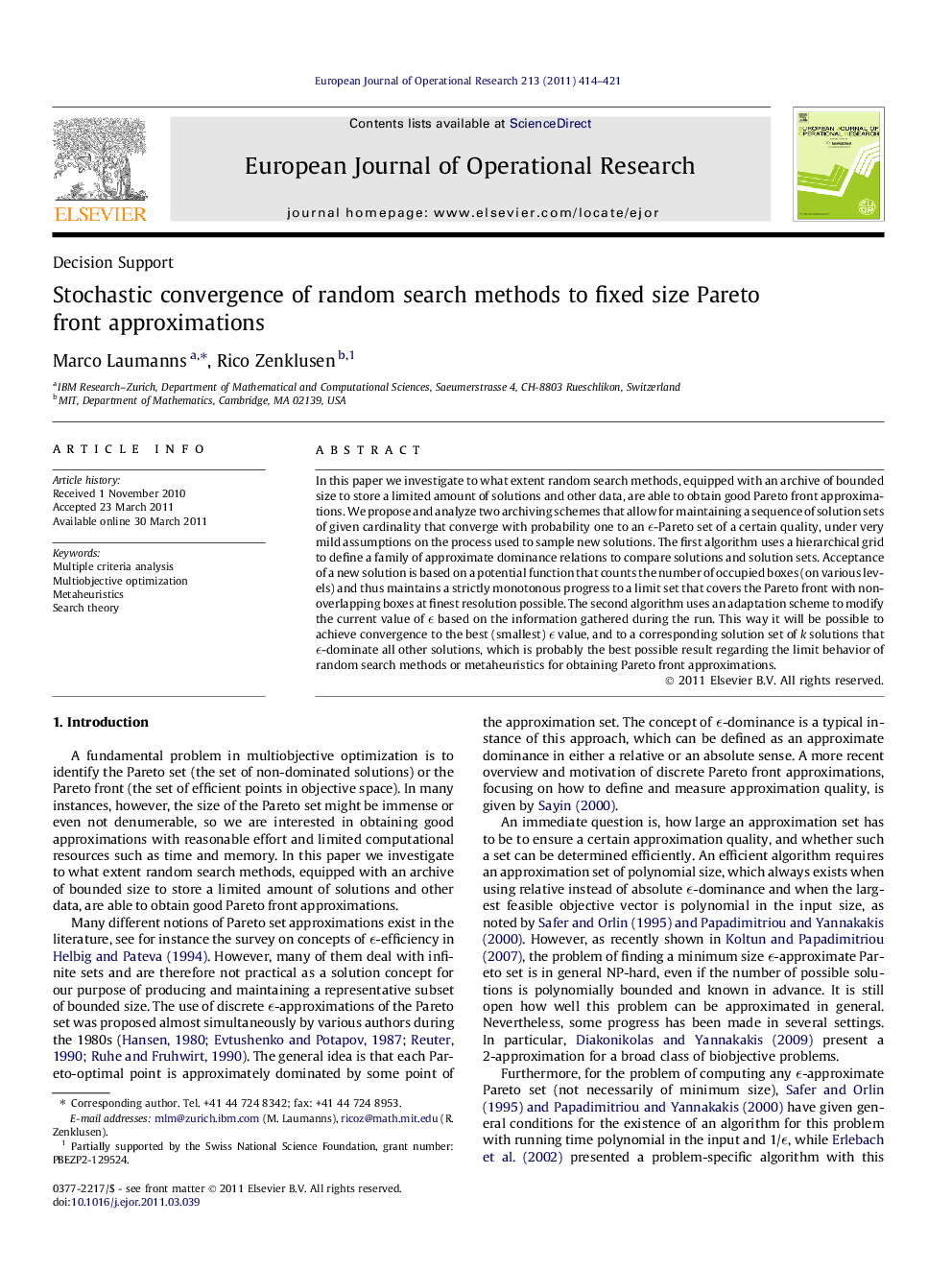| کد مقاله | کد نشریه | سال انتشار | مقاله انگلیسی | نسخه تمام متن |
|---|---|---|---|---|
| 477002 | 1446097 | 2011 | 8 صفحه PDF | دانلود رایگان |

In this paper we investigate to what extent random search methods, equipped with an archive of bounded size to store a limited amount of solutions and other data, are able to obtain good Pareto front approximations. We propose and analyze two archiving schemes that allow for maintaining a sequence of solution sets of given cardinality that converge with probability one to an ϵ-Pareto set of a certain quality, under very mild assumptions on the process used to sample new solutions. The first algorithm uses a hierarchical grid to define a family of approximate dominance relations to compare solutions and solution sets. Acceptance of a new solution is based on a potential function that counts the number of occupied boxes (on various levels) and thus maintains a strictly monotonous progress to a limit set that covers the Pareto front with non-overlapping boxes at finest resolution possible. The second algorithm uses an adaptation scheme to modify the current value of ϵ based on the information gathered during the run. This way it will be possible to achieve convergence to the best (smallest) ϵ value, and to a corresponding solution set of k solutions that ϵ-dominate all other solutions, which is probably the best possible result regarding the limit behavior of random search methods or metaheuristics for obtaining Pareto front approximations.
► We address the problem of finding Pareto front approximations of given size.
► Two algorithms are proposed and their convergence properties analyzed.
► The first algorithm uses a new multi-level grid archiving (MGA) strategy.
► The second algorithm uses epsilon-adaptation to find an optimal k-subset.
► Both algorithms converge almost surely to a subset of the Pareto front.
Journal: European Journal of Operational Research - Volume 213, Issue 2, 1 September 2011, Pages 414–421